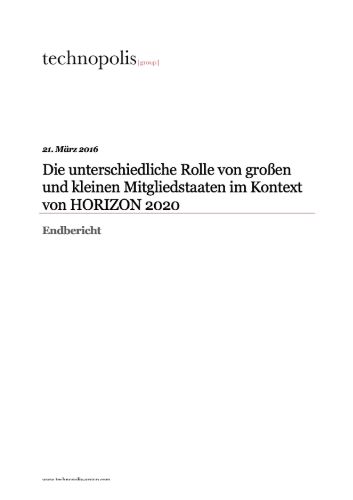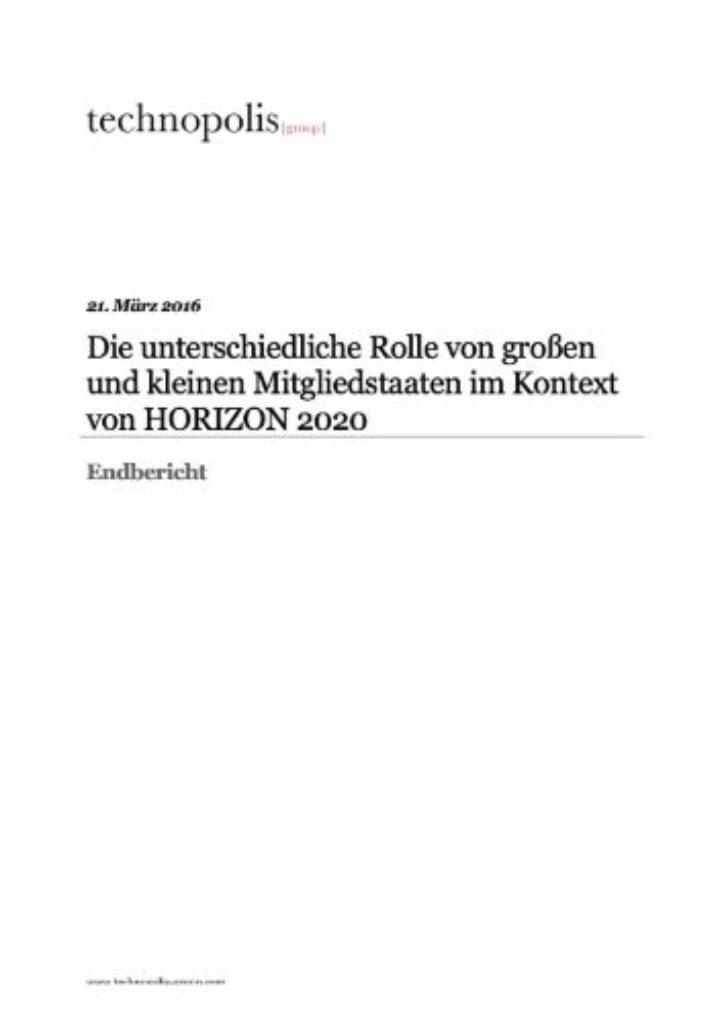Study on the different roles of big and small member states in the context of Horizon 2020
Publication date: 13 April 2016 | Report language: DE
We were commissioned to investigate member state’s ability to shape EU research policy, following concerns from some national delegates that small member states were losing influence compared to larger ones in the context of Horizon 2020. That, however, is not what we found. Rather, EU-level research policy and funding have changed so that the old model – which basically sees the Framework programme as a source of funds to be competed for – is no longer effective. Instead, large, multilateral initiatives, such as ERAnet, joint programming, technology platforms etc., are becoming increasingly important players in the EU’s research policy and budgeting. This has meant that member states’ delegates, of states large and small alike, are, relatively speaking, losing influence vis-a-vis other players who have gained importance.
In this new environment, we found that some delegates are thriving, while others are struggling. The key to success is to bring a strong policy agenda to EU-level discussions, backed up with support and commitment from home. To interact successfully with the EU, national research policy has to be designed and implemented in the light of and in interaction with EU policy. Governments as well as research performing institutions, need to think beyond participation in individual projects, and to think about how their agendas relate to those of the newly multilateral EU research policy and how they can mutually benefit from this interaction.



